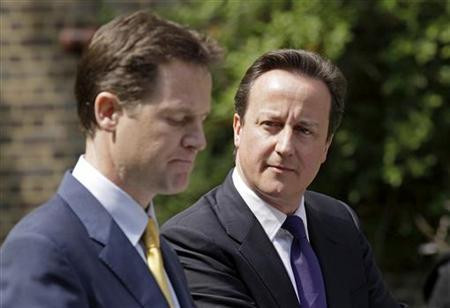Liberal Democrat Conference: As conference season begins honesty can save politics from apathy

As party conference season begins Britain's politicians will be seeking to create some stability following the general election in May, the election which led to Britain's first coalition government since the Second World War.
Both the Conservative and Liberal Democrat Parties will no doubt attempt to soothe their members concerns about the new special relationship between them, in addition to promoting to the public what they consider to be their achievements and their agenda for cuts.
Meanwhile Labour will be using the opportunity to unite around a new leader, who will be announced on 25 September, the day before their conference begins.
However it seems unlikely that any of them will be able to inspire the British people with a vision for the future of our country.
Since the election some have been talking of the dreadful defeat inflicted on the Labour Party, just a few days ago the BBC's Andrew Marr mentioned the "battering" that the Party suffered.
Certainly they lost the election, but it was not the 1997 style massacre that was being predicted just a year before. Labour lost but the Conservatives did not win. Indeed a recent BBC programme on the wheeling and dealing after the election revealed how close Labour came to retaining power with the help of the Liberal Democrats.
The sad fact of the matter is that elections have become unpopularity contests, with the party that fails the least badly by being the least detested (in this case the Conservatives) forming the government.
The true winner from the election was apathy. Turnout was just 65 per cent, meaning that in what was billed as one of the most important, closely fought elections for the country, at a time of economic crisis one in three people could not see any real difference between the parties and could not care less who was elected to deal with problems like the economy and Afghanistan.
Indeed if people who did not vote had their vote cast automatically for a hypothetical None Of The Above (NOTA) candidate then the recent election result would have been quite different, with NOTA winning a landslide majority, as the figures below show.
Actual Results / (Results if "NOTA" were standing)
NOTA: 0 / (431)
Conservatives: 307 / (173)
Liberal Democrats: 57 / (25)
Labour: 258 / (20)
Others: 26 / (1 Sinn Fein)
While the figures show that only around half of Conservative and Lib Dem MPs are considered worth voting for (or against) by their own constituents, the stand out figure is the near annihilation of Labour, which would find itself with just 20 seats.
More often than not supposedly safe Labour seats are safe not because the local MP is so popular, or because the people are overwhelmingly Labour but because almost half the voters are simply apathetic. Labour MPs with as much as 70 per cent of the vote would still lose their seats to NOTA, as turnout is so poor in most Labour seats. Any party or movement that could mobilise these disaffected people could end the Labour Party as a serious force and could probably relegate the Conservatives to permanent second place as well.
Alternatively if the Labour Party were able to renew itself under a new leader it could gather some of these lost voters and become a genuine movement of the people, rather than the political wing of the TUC.
Sadly none of the current Labour leadership contenders seem likely to be able to do this. All five of them would have lost their seats to NOTA (although with Diane Abbott it would have been close). If they can't even get their own constituents to vote for them in large numbers, what hope do they have of rallying the nation?
By contrast despite a severe culling of their parties, both David Cameron and Nick Clegg would hold their seats comfortably against NOTA, as would Gordon Brown, despite his apparent unpopularity nationally.
The names of the surviving MPs suggest that voters prefer to vote for interesting characters who will speak their mind, rather than party placemen (and women) wanting to climb the greasy pole. Almost the whole Labour shadow cabinet would fail to get elected against NOTA, while MPs like Stephen Pound, Jeremy Corbyn, Siobhain McDonagh, Jim Sheridan and Keith Vaz would be returned to Parliament safely.
In London we have seen Ken Livingstone and Boris Johnson, politicians who speak their mind even if that means antagonising their party and parts of the electorate on occasion, elected mayor.
By contrast those who spend their public lives evading and fudging questions so as not to say anything anyone might disagree with generate no respect and succeed only in turning people off.
It would be good if this party conference season we could have a bout of honesty to liven up politics and enthuse the nation, but somehow I suspect we will have more of the same platitudes that send a third of the electorate into a stupor.
© Copyright IBTimes 2025. All rights reserved.




















